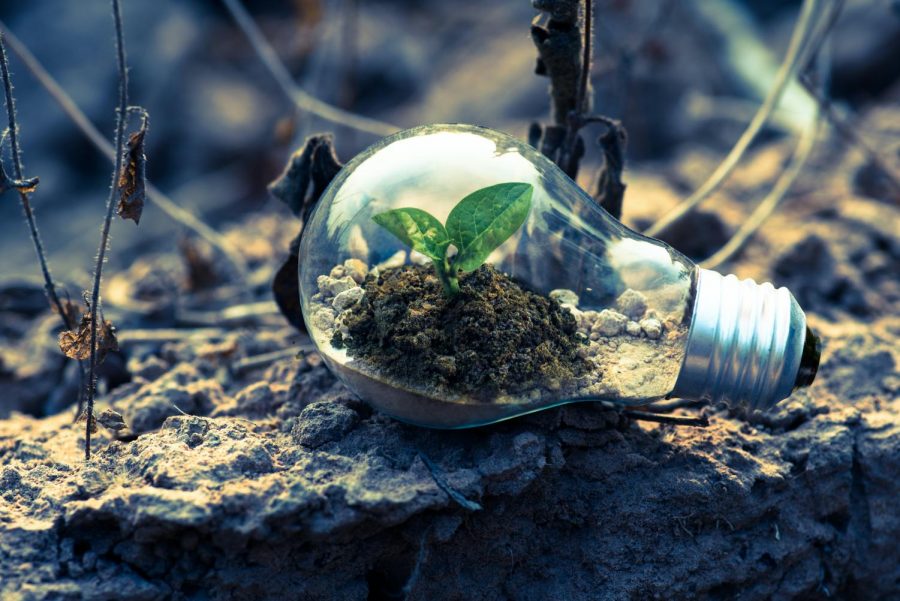The Environment Amidst the Pandemic
May 20, 2021
Over a year into the COVID-19 pandemic, there is no doubt that each and every one of our lives has been affected in one way or another. While some have dealt with loss, as well as the grief and pain that comes with it, others have not been able to travel abroad due to travel restrictions. Holidays were celebrated through remote gatherings, seeing friends and family members from across a screen; this pandemic has totally changed our lives.
COVID-19 has also immensely impacted the environment. In 2020, there was a 6.4 percent decrease in global carbon emissions compared to 2019, as more people were working at home and fewer were traveling by means of transportation that release carbon dioxide into the atmosphere. Here at PDS, as most of our work became digital, there has also been less demand for paper. Energy and Climate Scholars (ECS) faculty advisor Darling Cerna noted, “We’ve gone through a lot less boxes of paper as we’ve minimized what we print.”
While these all point to positive effects, there have also been many negative impacts. On the streets of cities and towns are disposable masks, gloves, utensils, and plates. Places such as Princeton University switched from more eco-friendly methods put in place prior to the pandemic to old, less sustainable practices. This was done to increase air circulation to bring students back on campus. After an interview with Dr. Shana Weber, Head of Sustainability at Princeton University, EnAct co-head Senior Holly Teti noted, “Princeton isn’t meeting its carbon reductions because the increased ventilation is increasing their energy uses.”
Senior Abby Weinstein, co-head of EnAct, shared, “I’m not saying these things aren’t necessary (most of them are), but it’s important to be mindful. We can do simple things to avoid these problems like wear [reusable] masks and bring in reusable cutlery.”
While it is true that the COVID-19 pandemic did have some positive impacts on the environment, the seemingly significant percent decrease in carbon emission is still not enough to solve other global challenges, specifically climate change, in the short term. However, if specific courses in schools could move online in the future, not only is online material centralized and easy to manage, but this could lead up to one of the potential solutions for reducing carbon emissions, as well as paper and ink usage, for example. Under these circumstances, we could find opportunities to learn and grow from challenges.
Nonetheless, it is as crucial as ever before to stay safe from this virus. Wearing a mask, keeping a fair distance in public areas, these actions are still helpful in reducing the spread of COVID-19. It is the same as it always has been: as long as each one of us plays our role, taking all necessary precautions, together, we can stop the spread of the virus at the same time of protecting our planet.








